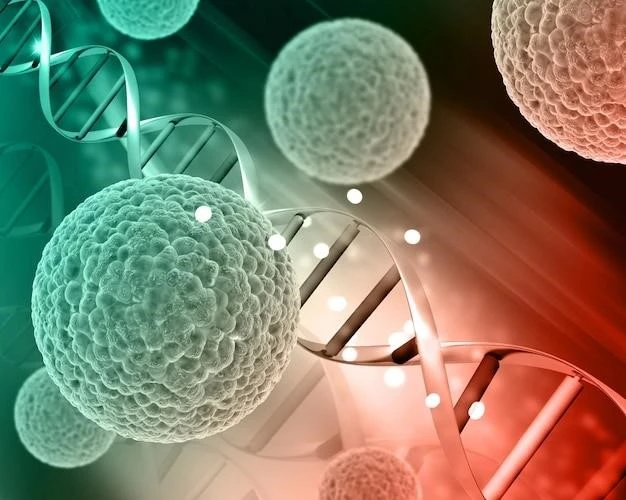Familial Wilms Tumor 2
Familial Wilms Tumor 2, also known as hereditary Wilms tumor, is linked to genetic mutations on chromosome 19. This article explores the impact of tumor suppressor genes, oncogenes, and the role of genetic counseling in managing this hereditary cancer syndrome.
Understanding Familial Wilms Tumor 2
Familial Wilms Tumor 2 is a rare form of hereditary cancer syndrome characterized by a predisposition to developing kidney cancer, specifically Wilms tumor. This condition is associated with genetic mutations on chromosome 19, particularly in the tumor suppressor gene WT1. Individuals with a family history of Wilms tumor are at an increased risk of developing this disease, highlighting the importance of genetic testing and counseling.
Wilms tumor primarily affects children, with most cases diagnosed before the age of 5. Common treatment approaches for Familial Wilms Tumor 2 include nephrectomy (surgical removal of the affected kidney), chemotherapy, and radiation therapy. Pediatric oncologists play a crucial role in managing the care of young patients with Wilms tumor, ensuring comprehensive treatment and support.
Genetic counseling is essential for families affected by Familial Wilms Tumor 2, providing information about the hereditary nature of the condition, recurrence risks, and available screening options. Understanding the genetic basis of the disease can help individuals make informed decisions regarding their health and that of future generations.
Research into Familial Wilms Tumor 2 focuses on identifying novel therapeutic strategies, improving outcomes for patients with this rare genetic condition. Clinical trials play a vital role in testing new treatment modalities and identifying potential targeted therapies that may benefit individuals with Familial Wilms Tumor 2.
By unraveling the molecular mechanisms underlying Wilms tumor development, scientists aim to uncover the role of oncogenes in driving tumor growth and progression. Targeting these genetic abnormalities may lead to more effective treatment options and better outcomes for patients with Familial Wilms Tumor 2.
Genetic Factors in Hereditary Cancer Syndromes
Hereditary cancer syndromes such as Familial Wilms Tumor 2 are caused by specific genetic mutations that are passed down from one generation to the next. In the case of Familial Wilms Tumor 2, mutations in the tumor suppressor gene WT1 on chromosome 19 play a critical role in predisposing individuals to kidney cancer.
These genetic changes can disrupt normal cellular functions, leading to uncontrolled cell growth and tumor formation. Understanding the genetic factors underlying hereditary cancer syndromes is crucial for early detection, intervention, and personalized treatment strategies.
Genetic testing is a valuable tool in identifying individuals at risk of developing Familial Wilms Tumor 2. By analyzing the presence of specific mutations associated with the syndrome, healthcare providers can offer targeted screening, surveillance, and preventive measures to high-risk individuals and their families.
Families with a history of Wilms tumor or other hereditary cancer syndromes benefit from genetic counseling, which provides insight into the inheritance patterns, risks, and management options available. By addressing the genetic components of these conditions, healthcare professionals can support families in making informed decisions about their healthcare.
Ongoing research continues to explore the complex interplay of genetic factors in hereditary cancer syndromes, shedding light on potential therapeutic targets and interventions. By unraveling the genetic complexity of diseases like Familial Wilms Tumor 2, scientists strive to develop more effective treatments and improve outcomes for individuals affected by these rare genetic conditions.
Medical Interventions for Familial Wilms Tumor 2
Patients with Familial Wilms Tumor 2 may undergo a combination of medical interventions to manage their condition effectively. Treatment often involves a multidisciplinary approach coordinated by pediatric oncologists, surgeons, and other healthcare professionals.
Surgical intervention, such as nephrectomy, is a common treatment for Wilms tumor. This procedure involves the surgical removal of the affected kidney to prevent the spread of cancer cells. Nephrectomy may be followed by chemotherapy to target any remaining cancer cells in the body.
Chemotherapy treatment plays a crucial role in eradicating cancer cells and preventing the recurrence of Wilms tumor. A variety of chemotherapy drugs may be used, depending on the stage of the cancer and the individual’s response to treatment.
In some cases, radiation therapy may be recommended to target localized cancer cells or reduce the size of the tumor before surgery. Radiation therapy uses high-energy rays to destroy cancer cells and is often employed in combination with other treatment modalities.
Patients with Familial Wilms Tumor 2 may also be eligible to participate in clinical trials exploring novel treatment options and targeted therapies. These research studies aim to evaluate the effectiveness and safety of new therapies٫ providing patients with access to cutting-edge treatments that may improve outcomes.
Regular follow-up care and monitoring are essential for individuals with Familial Wilms Tumor 2 to track their progress, detect any signs of recurrence, and address any potential complications. By working closely with their healthcare team, patients can receive comprehensive care tailored to their specific needs and treatment goals.

Importance of Genetic Counseling
Genetic counseling plays a vital role in the management of Familial Wilms Tumor 2, providing individuals and families with valuable information about the hereditary nature of the condition and the associated genetic risks. By working with a genetic counselor, patients can gain insight into the inheritance patterns, recurrence risks, and available screening options;
For families with a history of Wilms tumor or other hereditary cancer syndromes, genetic counseling offers the opportunity to understand the genetic basis of the disease and make informed decisions about healthcare management. Through genetic testing, individuals at high risk of developing Familial Wilms Tumor 2 can be identified, enabling early detection and intervention.
Genetic counselors also provide support and guidance to families navigating the complexities of hereditary cancer syndromes, addressing concerns, answering questions, and assisting in decision-making regarding screening, surveillance, and preventive measures. By empowering individuals with knowledge about their genetic predisposition, genetic counseling facilitates proactive healthcare planning and risk assessment.
Furthermore, genetic counseling can help individuals and families cope with the emotional and psychological impact of a hereditary cancer diagnosis, offering resources and support to enhance resilience and well-being. By fostering open communication and education about the genetic aspects of Familial Wilms Tumor 2, genetic counselors contribute to improved health outcomes and quality of life for affected individuals and their families.
Overall, genetic counseling serves as a critical component of comprehensive care for individuals with Familial Wilms Tumor 2, providing personalized guidance, support, and empowerment in navigating the challenges of a hereditary cancer syndrome. By collaborating with healthcare providers and genetic counselors, patients can make informed decisions about their health and well-being, leading to improved management and outcomes for this rare genetic condition.
Current Research and Clinical Trials
Ongoing research efforts are focused on advancing the understanding and treatment of Familial Wilms Tumor 2, a rare hereditary cancer syndrome with genetic mutations on chromosome 19. Clinical trials play a crucial role in evaluating new therapeutic approaches, improving outcomes, and enhancing care for patients affected by this condition.
Scientists are investigating novel treatment modalities, including targeted therapies that aim to address the specific genetic abnormalities associated with Familial Wilms Tumor 2. By targeting oncogenes and other molecular factors driving tumor growth, researchers are exploring potential interventions that could offer more effective and personalized treatment options.
Clinical trials provide patients with access to cutting-edge treatments and investigational therapies that may not be available through standard care. These studies aim to assess the safety and efficacy of new interventions, offering hope for improved outcomes and quality of life for individuals with Familial Wilms Tumor 2.
Research initiatives also focus on the development of precision medicine approaches tailored to the genetic profile of each patient, with the goal of delivering more personalized and targeted treatments. By unraveling the complex genetic factors contributing to Familial Wilms Tumor 2, researchers strive to identify new therapeutic targets and strategies for combating this rare hereditary cancer syndrome.
Furthermore, collaborative efforts between scientists, healthcare professionals, and advocacy groups are working to raise awareness about Familial Wilms Tumor 2, enhance genetic testing capabilities, and improve access to specialized care for individuals and families affected by this condition. By participating in clinical trials and supporting research endeavors, patients contribute to the advancement of knowledge and the development of innovative treatments for Familial Wilms Tumor 2.
Impact of Oncogenes on Wilms Tumor Development
Oncogenes play a significant role in the development and progression of Wilms tumor, including Familial Wilms Tumor 2, a rare hereditary cancer syndrome with genetic mutations on chromosome 19. These genes have the potential to drive abnormal cell growth and division, contributing to the formation of tumors in the kidneys.
Specific oncogenes implicated in Wilms tumor may promote uncontrolled cell proliferation, evade cell death mechanisms, or enhance angiogenesis, the process of forming new blood vessels to support tumor growth. By altering normal cellular functions, oncogenes can disrupt the regulatory pathways that maintain cell homeostasis, leading to the development of cancer.
Understanding the impact of oncogenes on Wilms tumor development is crucial for identifying targeted therapies that can inhibit the activity of these genes and disrupt tumor growth. Researchers are exploring novel treatment strategies that aim to block the signaling pathways activated by oncogenes, potentially offering more effective and tailored interventions for individuals with Familial Wilms Tumor 2.
By elucidating the molecular mechanisms driven by oncogenes in Wilms tumor, scientists seek to unravel the genetic complexity of this disease and identify vulnerabilities that can be exploited for therapeutic benefits. Targeting oncogenes represents a promising approach in the quest to develop precision medicine treatments that address the specific genetic abnormalities underlying Familial Wilms Tumor 2.
Ongoing research efforts focus on deciphering the interplay between oncogenes, tumor suppressor genes, and other genetic factors involved in Wilms tumor development. By gaining insights into the molecular landscape of this hereditary cancer syndrome, researchers aim to pave the way for innovative therapies that target the root causes of Familial Wilms Tumor 2, ultimately improving outcomes and quality of life for affected individuals.
In conclusion, Familial Wilms Tumor 2 presents a complex challenge for individuals and families affected by this hereditary cancer syndrome. With genetic mutations on chromosome 19 playing a significant role in predisposing individuals to kidney cancer, a multidisciplinary approach encompassing genetic counseling, medical interventions, and research initiatives is essential for managing this rare condition.
Genetic testing and counseling are paramount in identifying individuals at risk of developing Familial Wilms Tumor 2 and guiding healthcare decisions based on personalized genetic information. By understanding the genetic factors underlying this syndrome, patients and families can proactively manage their health and well-being.
Medical interventions such as nephrectomy, chemotherapy, radiation therapy, and participation in clinical trials offer hope for improved outcomes and enhanced treatment options for individuals with Familial Wilms Tumor 2. Collaborative efforts between researchers٫ clinicians٫ and advocacy groups drive advancements in precision medicine and targeted therapies for this rare hereditary cancer.
The impact of oncogenes on Wilms tumor development underscores the importance of unraveling the molecular mechanisms driving cancer growth. By targeting these genetic abnormalities, researchers aim to develop tailored treatments that address the specific genetic factors contributing to Familial Wilms Tumor 2, ultimately improving prognosis and quality of life for affected individuals.
Through ongoing research endeavors, clinical trials, and collaborative partnerships, the scientific community continues to make strides in understanding and treating Familial Wilms Tumor 2. By leveraging genetic insights and innovative therapies, healthcare providers strive to empower patients with the knowledge and resources needed to navigate the complexities of this hereditary cancer syndrome, ultimately leading to improved care and outcomes.
